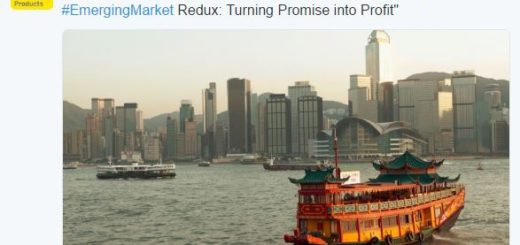2015: High Five for the world!
You can also read a version of this post on the Huffington Post by clicking here.
 Bad news by far outsells good news, making news channels so depressing that my wife refuses to watch any, unless forced by someone (usually me). It should not surprise us therefore, that as 2015 comes to an end, most people think of it as having been a terrible year, full of death, displacement and tragedy caused by terrible acts of violence, war and terror that were perpetrated over the course of this year and amplified manifold by world media. Except, this is not the complete picture. In fact, if you could only peel your eyes away from the gory images of death and destruction arising from the acts of 1% of us, you would realize that the remaining 99% of us have actually managed to move human civilization forward significantly this year. In this post, I would like to highlight the five biggest ways (in my opinion) in which human civilization advanced in 2015.
Bad news by far outsells good news, making news channels so depressing that my wife refuses to watch any, unless forced by someone (usually me). It should not surprise us therefore, that as 2015 comes to an end, most people think of it as having been a terrible year, full of death, displacement and tragedy caused by terrible acts of violence, war and terror that were perpetrated over the course of this year and amplified manifold by world media. Except, this is not the complete picture. In fact, if you could only peel your eyes away from the gory images of death and destruction arising from the acts of 1% of us, you would realize that the remaining 99% of us have actually managed to move human civilization forward significantly this year. In this post, I would like to highlight the five biggest ways (in my opinion) in which human civilization advanced in 2015.
#5 – We further explored space, the final frontier
NASA’s New Horizons space mission reached Pluto this year and has sent back amazing pictures of the “dwarf planet”. Before you dismiss this as ho-hum, do take a moment to reflect on the fact that we humans, who stand less than 2 meters tall, are able to see up close the surface of Pluto, which was over 5 billion kilometers away from earth when New Horizons flew past! Yes, practical benefits of these odysseys may be decades away, but that is precisely how we have advanced as a race: one small, painstaking step at a time.
#4 – We agreed, more than we disagreed
It may not appear so, but this year the world agreed on significant matters that we have been arguing about for decades. In Iran, a long-standing threat of nuclear escalation was defused, with an agreement being reached between Iranians and the US-led West. On Greece, better sense prevailed and a bailout on sensible terms was agreed between the Greeks and the German-led EU. We didn’t quite agree on gay rights, but we made progress on the issue anyway, thanks to a historic US Supreme Court verdict. The beleaguered and much maligned World Trade Organization (WTO) inked two very important agreements this year, one on global trade of IT products, worth $1.3 trillion, and another on agricultural subsidies, which will, over time, remove several artificial skews in food distribution and barriers to world trade.
#3 – We connected more of the world, thus democratizing opportunity
On August 24, 2015 one billion humans used Facebook in a single day. Google has been doing over 3 billion searches daily for a while now. We have never been as connected! In 2015, we connected another half a billion people to the Internet for the first time (mostly on mobile devices), most of them in Africa and developing Asia, including in nations like Myanmar, which is breathing both political and digital freedom after decades of suppression and oblivion. The business implications of this level of global connectivity are already obvious. On November 11 this year, Alibaba’s Chinese online shopping extravaganza Singles Day generated $14.3 billion in sales in a single day, making it by far the largest shopping event on the planet (Cyber Monday in the US trails at “only” $3 billion this year). These numbers have been astounding us year on year and will continue to do so (I still remember my awe five years ago in 2010, when Singles Day clocked $1 billion for the first time), but the significance of the creation of a connected, global village goes way beyond mere e-commerce. In its grandest manifestation, it allows for what I call the “democratization of opportunity”. Today the best of human knowledge is available online, and often for free. Anyone can start a business in this “sharing” or “gig” economy, as ideas can attract talent and funding regardless of their origin, reducing barriers to entry and stimulating innovation on an unprecedented scale. Furthermore, anyone can now write or otherwise express themselves politically, socially or artistically on a global stage. This democratization of opportunity on a global scale was never possible before in human history, and represents a powerful step forward for civilization.
Of course this year, we have started connecting more than just the people of the world. The Internet Of Things has started making real progress in connecting home and industrial devices, leading to smarter supply chains as a first step, and eventually to smarter grids, homes, streets and cities! We have also started making our collective brain smarter, as artificial intelligence made impressive strides this year. More breakthroughs in these two areas should be expected in 2016 and beyond.
#2 – We edited genes and defeated microbes
An even bigger step forward that human civilization took this year has been in the microscopic space of genetics and microbiology, and this has been more or less completely buried in the deluge of other world events. Remember the ebola virus? I am sure you recall the media telling us in 2014 that it could wipe us all out, and indeed it was a great epidemic risk. What has been significantly under-reported this year is the fact that we have all but eradicated that virus, in the space of one year! Nigeria, Liberia and other African nations are almost ebola free now and are making rapid strides towards full eradication. Similarly, Africa eradicated polio this year, a hard-won victory over that disease that took more than 25 years, and went largely unsung! What’s more, a revolutionary genetic technology, human DNA editing, made rapid (and sometimes controversial) strides this year. The entire human epigenome was finally mapped this year, and we now have demonstrated the ability to “edit” human embryos using CRISPR , which has the potential to make future babies free of genetic disorders. Of course, as always, there are risks of misuse and a need for more regulation, as was discussed in the recent International Summit on human DNA editing, but the technology will march on meanwhile, as it must.
But perhaps the biggest – and least celebrated – win has been the discovery of teixobactin, a totally new antibiotic. To put this into perspective, the last time we discovered an entirely new antibiotic was over 30 years ago, and the first time was in 1928, when Alexander Fleming discovered penicillin! While this is significant enough by itself, the real significance is the process by which teixobactin has been discovered. Here’s why: as we have started using more and more antibiotics in the last few decades (not only on ourselves, but also on our feed-stock of plants and animals), bacteria have grown alarmingly resistant to them. Teixobactin has the ability to overcome even the most resistant bacteria, which is obviously great news. Trouble is, that only buys us time in the battle between our brains and bacterial evolution, since bacteria will evolve in a few decades to beat our new wonder drug, just as they did with previous antibiotics. Enter iChip, which is not an Apple product, but is a methodology for developing antibiotics that allows us to test future drugs on many more bacterial strains much faster than ever before! Essentially, the discovery of teixobactin using iChip not only puts us a few decades ahead of drug-resistant pathogens, but also makes the process of developing future antibiotics faster than the speed at which bacteria can evolve, putting us in pole position in this race.
#1 – We acted to save the planet by going beyond fossil fuels
After decades of being in denial, humans finally agreed that while our post industrial progress has been nothing short of phenomenal, it has taken its toll on the planet over the last couple of centuries, and that a different model of development – sustainable development – is no longer a nice to have, but a must have for our continued existence. The first round of climate talks were held in Rio in 1992, and the debate at the time was mostly centered on the question, “Is this a real thing?”. We have come a long way in a (relatively) short time since then, as all the nations in the world reached a landmark climate deal in Paris a few weeks ago. Everyone knows that the Paris agreement by itself will not suffice to address climate change. We also know that time is starting to run out, and already it is too late to entirely avoid the ill effects of global warming. Successive years 2014 and 2015 have been the hottest on record and 2016 promises to be at least as hot. Climatic disturbances are already starting to occur, and we will suffer these till we reach the so-called “peak” in 2050 or hopefully sooner. Nevertheless, the fact that we have come together as a civilization to accept, confront and address this issue gives us hope that we will find ways to save ourselves from climate hara-kiri, after all. Our best brains and economic powerhouses have already started finding ways to go beyond fossil fuels, the main culprit. Solar seems to be the technology of choice, with France and India coming together to form a grand Solar Alliance; Gates, Musk, Jack Ma and other tycoons coming together to commit billions for solar research, and Musk announcing the Tesla Powerwall earlier this year, hopefully as a sign of things to come.
Admittedly, addressing climate change and creating sustainable development goes way beyond clean energy alone, and much more needs to be done over time. However, I specifically mention going beyond fossil fuels as a step forward for human civilization in its own right, because it might finally pave the way for lasting peace in the Middle East, which is the other thing we need to save the planet. I won’t elaborate on this issue here, but leave it as a hopeful thought for the years to come!


